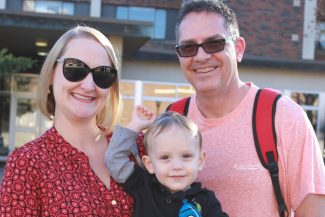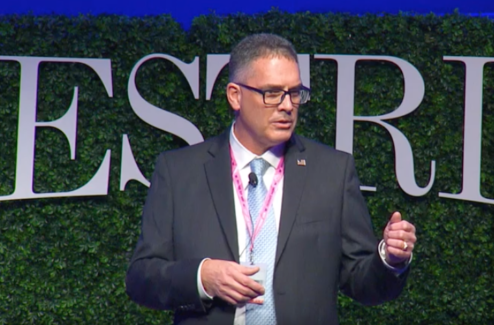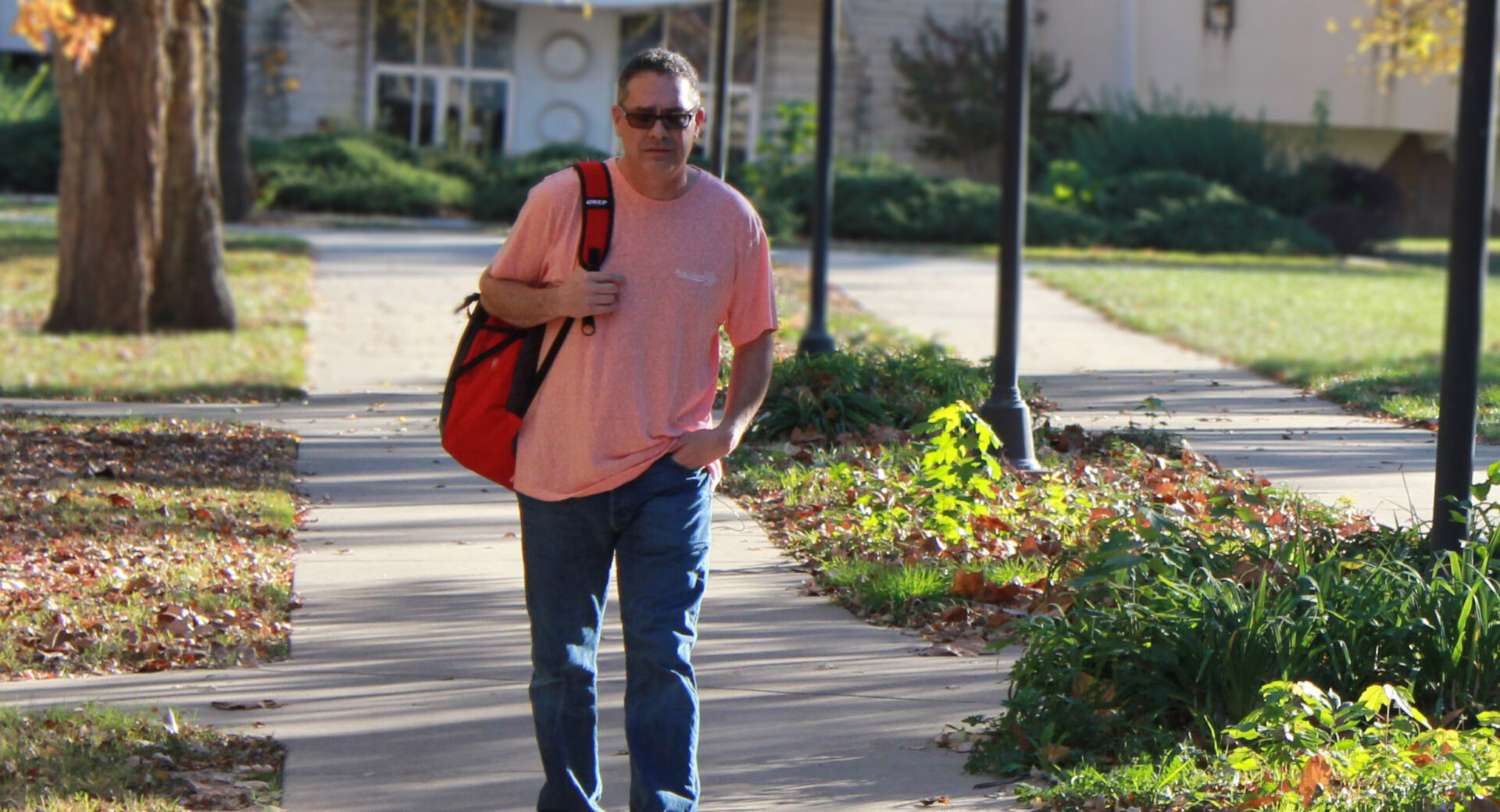PTSD Awareness Day is observed annually on June 27 and the entire month of June is also known as PTSD Awareness Month.
According to the U.S. Department of Veterans Affairs, about 7-8% of the United States population will suffer from PTSD, or post-traumatic stress disorder, at some point in their lives. Approximately eight million adults will experience post-traumatic stress disorder during any given year.
Many of those men and women are military veterans like Newman University alumnus James Stewart.
Stewart is a husband and father with a goal to help people and make a difference in others’ lives. He is married to Emily, and together they have a young son, Wyatt. Stewart also has four children from a previous marriage: Caleb, Jacob, Kelli Lynn and Gabriel.

Stewart attended Newman University and earned a Bachelor of Science in counseling with a concentration in addiction studies, graduating cum laude, in December 2018.
His college journey was not a traditional path like some. His collegiate education happened after he served his country in the U.S. Army.
Stewart began experiencing post-traumatic stress disorder carrying suicidal thoughts and spiraling into a life of “self-medicating with alcohol.”
He was eventually medically retired from the Army after 20 years of service, which left him with some unanswered questions about his future.
While dealing with his post-traumatic stress disorder, he tried filling his days with hobbies such as fishing, hunting and fixing things around the home, but he said he felt the need to do something more. Retirement wasn’t in his immediate future just yet.
It was Stewart’s mother-in-law, among other family members, who finally encouraged him to seek solace in something else — horses.
“I went to a program called Saratoga WarHorse,” said Stewart. “They take retired thoroughbred horses and pair them with soldiers who have PTSD or are going through problems, and it is amazing what happens.”
He values his time at Saratoga WarHorse and continues to give credit to the program for positive changes in his life.
When he returned from the program, he felt ready to start looking for a job but was not having luck in the search. That is when he decided to go after a new dream, a career in counseling.
He took the steps necessary, attending Hutchinson Community College then transferring to Newman University.
Stewart is currently working in Newton, Kansas, while studying for the state licensure exam.
When asked what he gained from his experience at Newman, Stewart said, “I learned how to transition into the individual I need to be to do the kind of work I am doing. I met other students that challenged me and became my friends. I grew emotionally and spiritually while at Newman. I am not Catholic, but we serve the same God.
“My heart softened and I understood I could love and care about people and it was ok to be myself,” he added. “For the most part, I never felt judged for being a veteran of war. I take away the ability to look at people with a kind heart and a sense of caring that I did not have when I first started my journey of recovery.”
Stewart said his passion to work with veterans continues to thrive. He said he looks forward to talking with people about “living a life without substances and violence.”

He was able to do that at Equestricon in Louisville, Kentucky, in October 2018. He delivered a keynote explaining how going to Saratoga WarHorse saved his life and spoke about the changes that happened; how a horse named Budder saved him and allowed him to live free from his anxiety and addictions.
During his speech, he explained his desire to give back and help others. Earning his degree, he said, will allow him to live that dream.
“My target group is veterans and teenagers. That’s who I want to work with. But … everybody that comes across my path, I try to give them everything I’ve got. To let them know that they can be free. It doesn’t matter if you went to war, it just doesn’t matter. Trauma is trauma.
“I spent my career wanting my family to be free. To not worry about anything. That’s what drove me. It was a horse named Budder that provided me with my own freedom.”
Stewart is excited to begin his new career in counseling. He said during his journey, he was surrounded by support and love and he wants to give back, to let individuals who are suffering from post-traumatic stress disorder and other trauma to understand their lives can be better, too.
Stewart added, “I love my life and am in a very good place mentally, physically and spiritually. I hope that people will choose to get help and understand that they have a choice of how they live life. Get into treatment and deal with the ugly stuff and learn to live a better way — without drugs, alcohol or violence.”
For more information about post-traumatic stress disorder, visit the National Center for PTSD website. To get help, call the National Suicide Prevention Lifeline at 1-800-273-8255. The U.S. Department of Veterans Affairs also offers a Veterans’ Crisis Hotline confidential chat resource.

